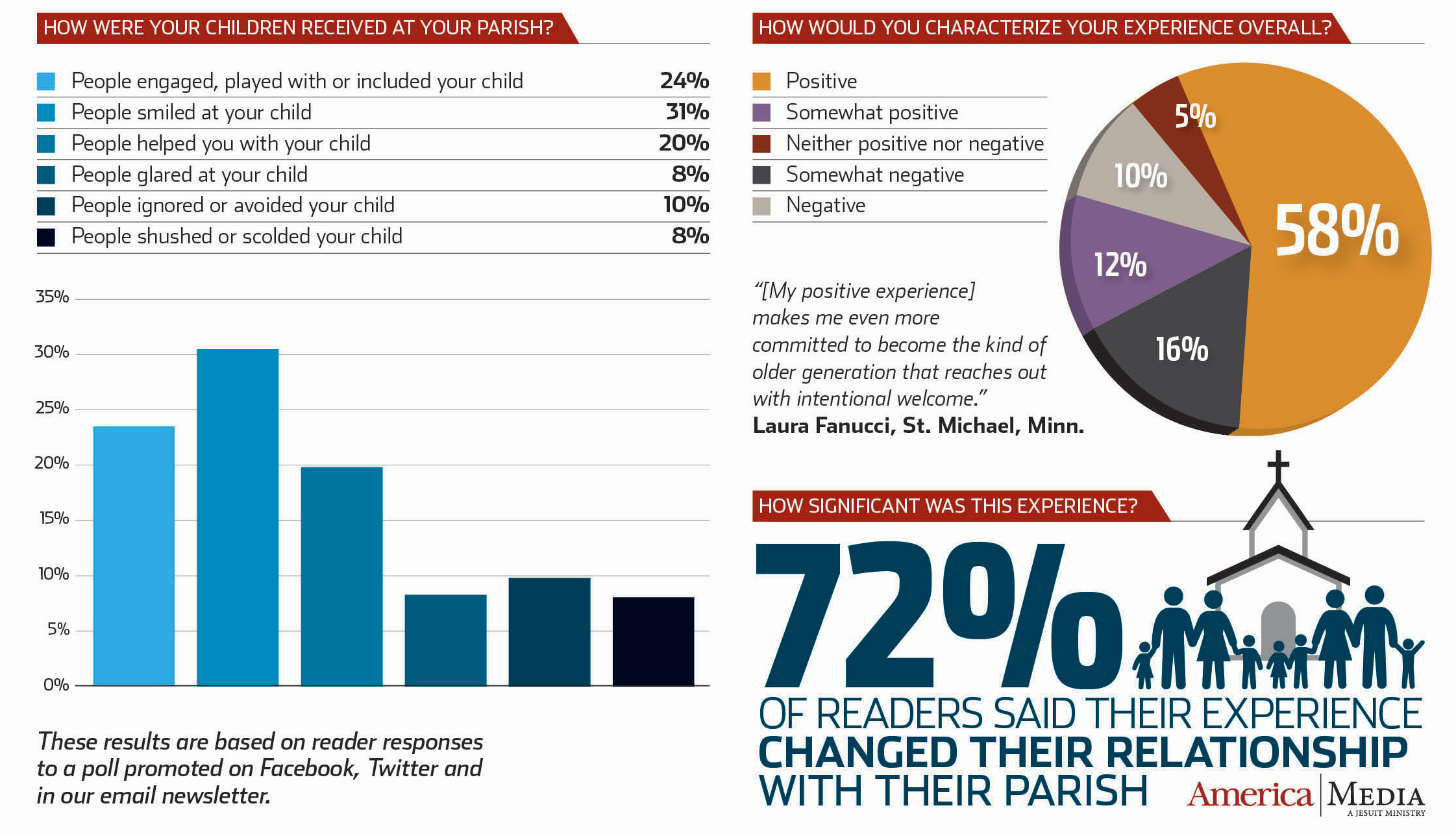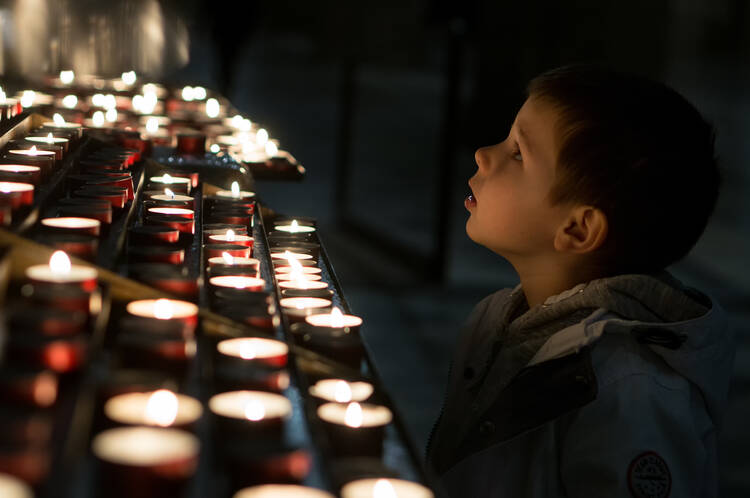Children are vital to sustaining parish life. Seventy-two percent of our reader sample told America that, for good or ill, the way their children were welcomed had a critical effect on their own relationship with their parish.
Fifty-eight percent of our readers told us that their experience of bringing children into their faith community was positive. Among these readers, 24 percent described how people had played with, engaged or included their children. Roberta Owen of Massachusetts expressed gratitude that her pastor “said not to worry about kids crying or wiggling during Mass” and described her support from a fellow parishioner, who encouraged her to breastfeed “and said what a gift it was to have babies at Mass.” Laura Fanucci of Minnesota explained how her parish’s positive response has been beneficial both to her own faith life and that of her children. “I know it is the loving welcome of our pastors and their willingness to literally take our kids up into their arms that has been formative for our sons,” said Ms. Fanucci. “Even on the Sundays that we think of as our ‘worst’ Masses—when kids have screamed, cried, had tantrums or had to be taken out of church—we've always had older adults come up to us afterward and thank us for bringing them to Mass.”
The remaining 42 percent of readers were largely reluctant to characterize their children’s introduction to their parish as devoid of positive qualities, but many told us that negative interactions made bringing their children to Mass very stressful. “I have two children on the autism spectrum,” explained Megan Williams from North Carolina. “A parishioner ripped my son's ear plug out of his ear and shook his head at us. They were plain, simple ear plugs because he can't handle the bells at the consecration.” From Alabama, Paul Wiget reported his faith life is directly affected by how his children are received at Mass. “I hate going to church. I have to tell myself it's about growing closer to Christ, but it just brings out the worst in me in child-policing.” For some parents, bad experiences led them to change parishes. This was true of Caprice Sauter of Washington State, who was grateful she made this decision. “It shouldn't be so hard to take your kids to Mass,” said Ms. Sauter. “I'm glad we persevered—we've got wonderful devout teens.”












I do not understand, with "Cry Rooms" available, that more parents to not
take advantage of them.
I don't mind the wiggling, fidgeting but when a child begins to cry loudly
and continually - can you not take your child to the "Cry Room" ?
If it does not matter whether the congregation can hear the Bible Readings
or the Homily because a child's screaming is drowning them out -
then what difference does it make if we just stay in our car, read the
readings ourselves and follow the liturgy and then pop in to receive
communion and pop out ?